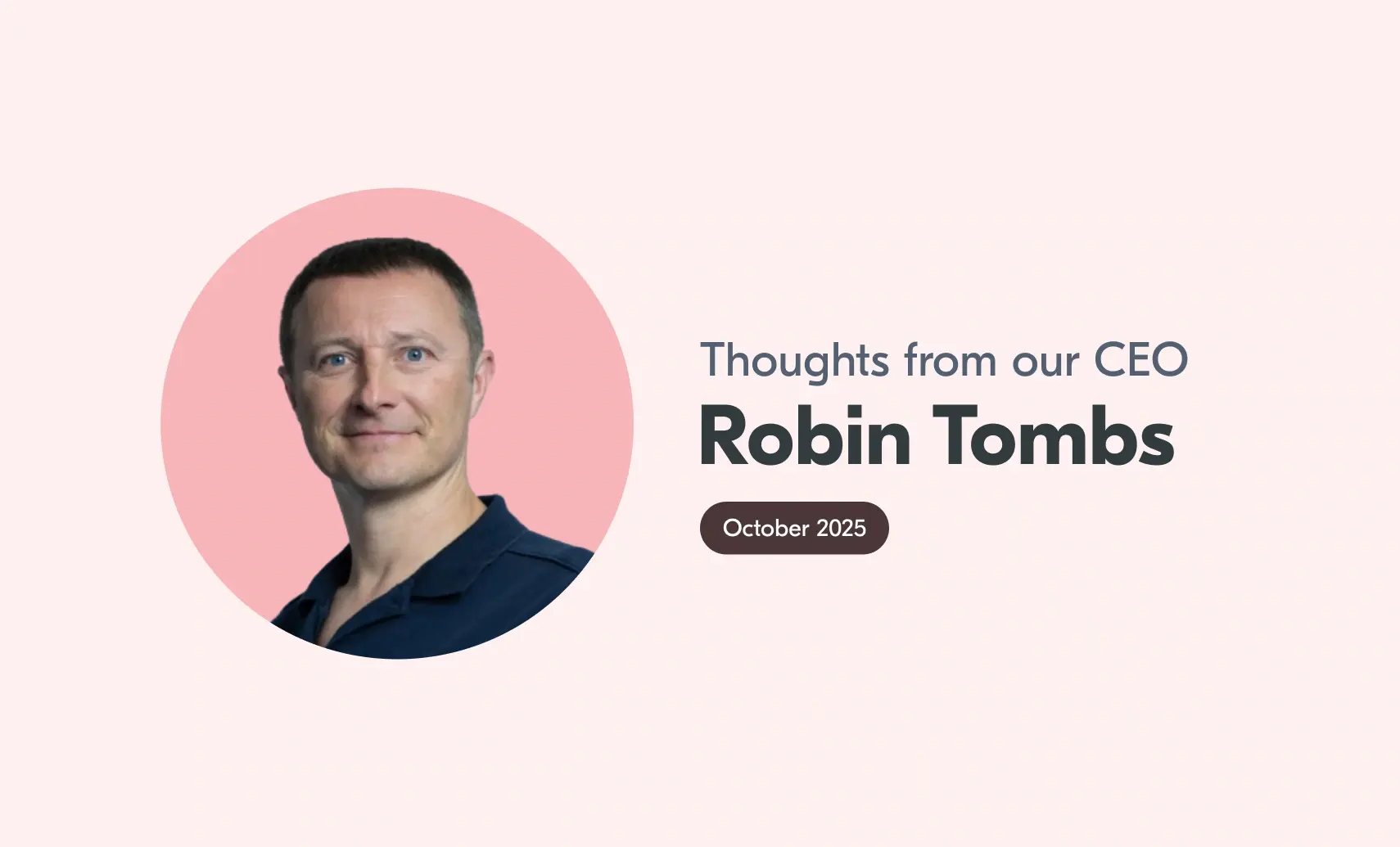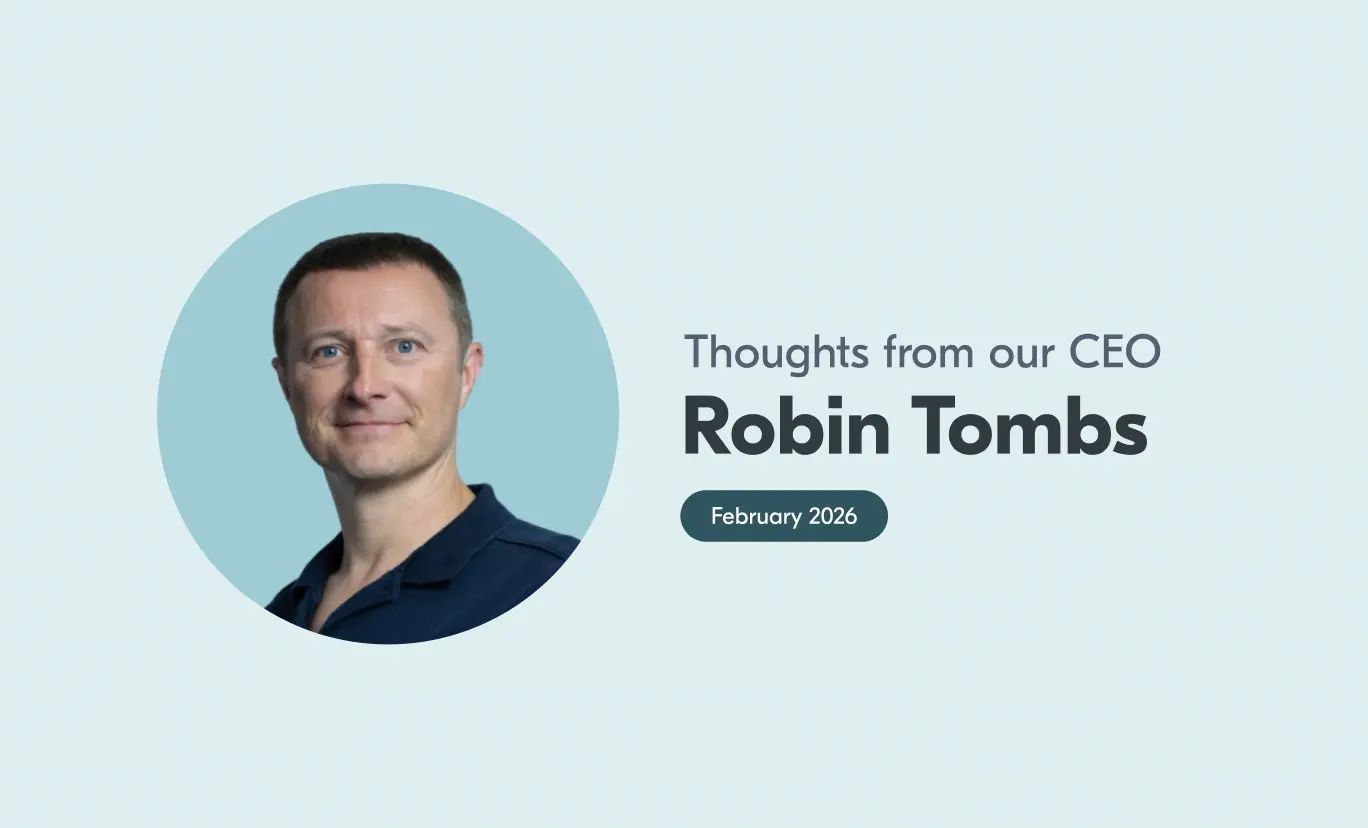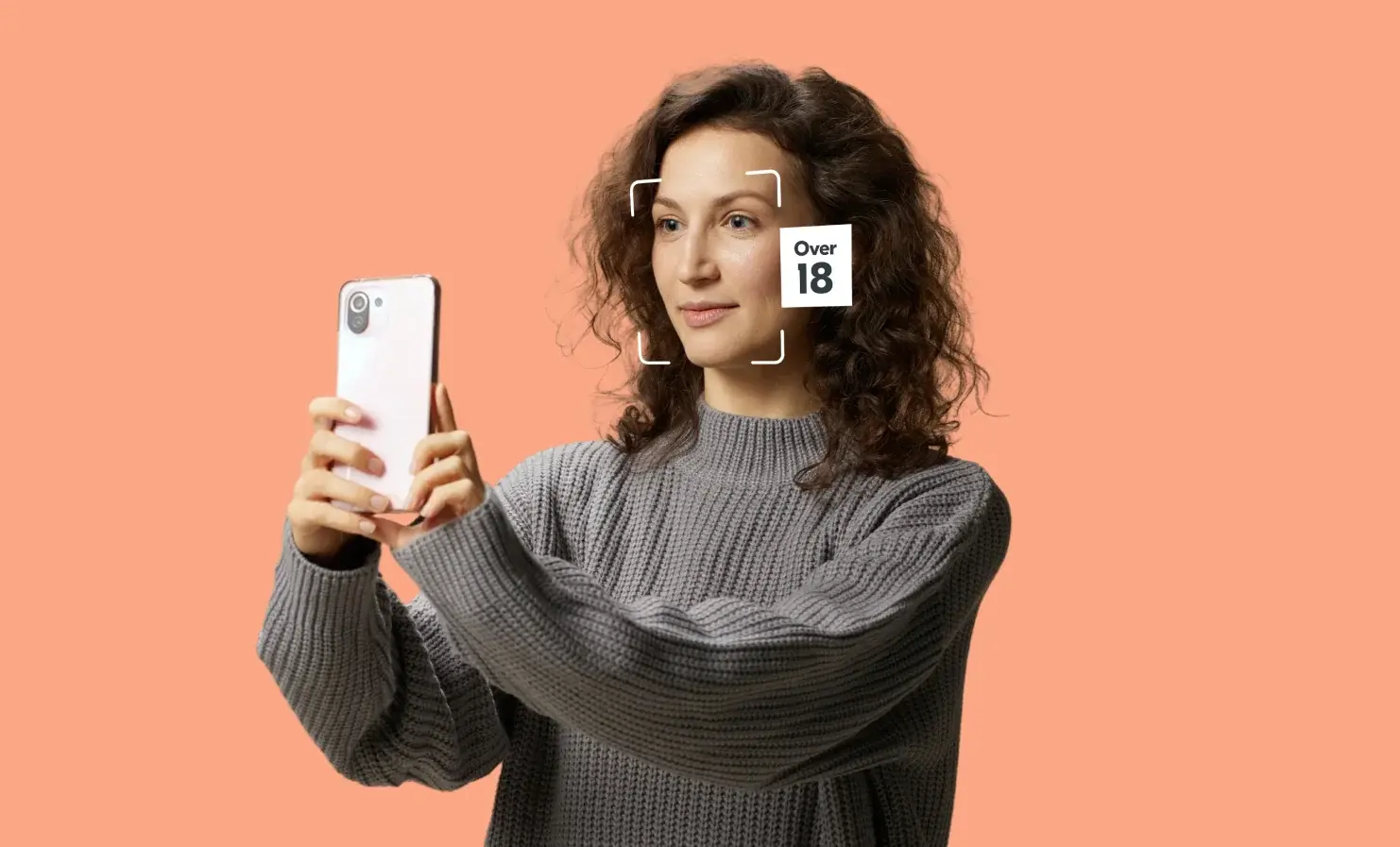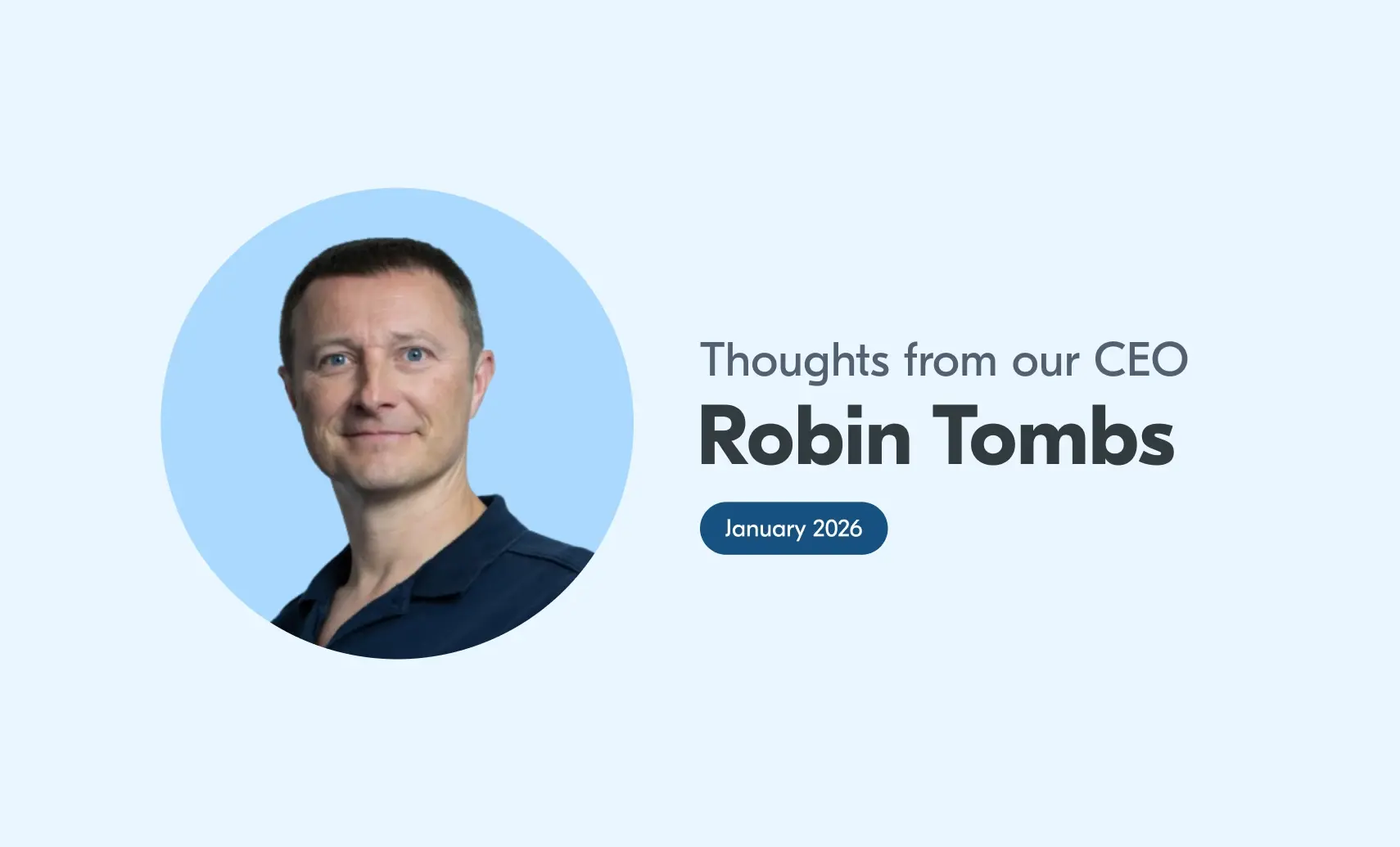
In this blog series, our CEO Robin Tombs will be sharing his experience, whilst focusing on major themes, news and issues in the world of identity verification and age assurance.
This month, Robin focuses on digital ID, talking about Yoti’s Digital ID downloads, digital ID for teenagers and the growing momentum for a private-sector digital ID network in the UK.
Yoti reaches 20 million global downloads
This month, the 20 millionth individual downloaded the Yoti Digital ID app. In the last six weeks alone, 1 million individuals have downloaded Yoti, of which 800,000 of them are from the UK and France.
Both France and the UK have online safety regulations that require privacy-preserving age checks to minimise child access to harmful content, including online pornography.
Where businesses accept Yoti app age shares, which have been evidenced with either a one-time facial age estimation or with a one-time addition of an identity document. 72% of Brits complete and rely on facial age estimation within the app, while 28% add an identity document to share their age. In France, 79% rely on facial age estimation and 21% use an identity document.
Globally, businesses receive Yoti age shares free of charge to maximise utility for Yoti’s app users. Independent testing by the National Institute of Standards and Technology (NIST) and Australia’s Age Assurance Technology Trial has confirmed that Yoti provides the most accurate facial age estimation results for the crucial 13-17 age group. We will submit an even more accurate model in November 2025.
One of our aspirations is to enable hundreds of millions of individuals around the world to use their face once in the free, privacy preserving Yoti app for age estimation. This will allow them to share their age anonymously, both online and face to face.
Many users also choose to add one or more identity documents to their Yoti app, so they can prove their identity online, in person with businesses, or during peer-to-peer checks.
By design, Yoti has no knowledge of who any of these users are – except when an identity document needs to be reviewed temporarily by experts in one of two biometrically locked-down Yoti Security Centres. No phones, cameras, tablets, pens, paper or unauthorised persons are permitted in either Security Centre.
Yoti Digital ID adoption surges across the UK and France
In 34 days from the start of September, just over 1 million individuals have voluntarily downloaded the super secure, privacy preserving Yoti Digital ID app.
In 100 days, over 1 million Brits have downloaded the Yoti app and over 1 million French users have done the same.
Since beta launch in November 2016:
- 19.7 million individuals globally have downloaded Yoti, with 3.8 million downloading Yoti in 2025.
- 6.9 million UK individuals have downloaded Yoti, including over 1.5 million in 2025.
Yoti is one of around 50 certified Digital Verification Service providers in the UK. Since April 2022, these providers have enabled individuals to provide digital proof of ID for right to work checks.
Each year, an estimated 15 million right to work checks are completed for permanent and temporary job hires. About 5 million of these are completed digitally. Yoti completes around 1.5 million digital right to work checks each year for UK businesses. Many of those roughly 1.5 million individuals use the Yoti or Post Office EasyID digital ID apps for right to work checks, costing businesses less than £1 per check.
There isis also an unknown number of mostly temporary or casual job hires in the UK each year where businesses break the law by choosing not to check right to work status.
Close to 3 million Brits have already signed a petition against mandatory digital ID cards in the UK.
The Government has committed to changing the alcohol laws before Christmas 2025 to allow adults to choose to use certified digital proof of age on smartphones when buying alcohol.
We expect 8 million Brits to have downloaded Yoti by early 2026 and 11-13 million by the end of 2026.
Hopefully, the Government will quickly make it clear that UK individuals will still be able to use Yoti and other UK DIATF-certified digital proofs of ID to complete right to work checks for many years (and parliaments) to come.
Momentum builds for a private digital ID network in the UK
When we founded Yoti in 2014, we thought 3 things were inevitable:
- The majority of individuals globally would want to control their key identity data through owning their own digital IDs on their phones.
- Providers of trusted, certified, reusable digital IDs would need to form networks to maximise their usefulness to individuals and businesses.
- Businesses would want maximum coverage of trusted, certified, digital IDs to eliminate friction and minimise fraud when interacting with new and existing customers.
We didn’t know how long it would take to see these jigsaw pieces fall into place but in the UK identity market, momentum is building.
We’re delighted that:
- Any businesses integrated with Yoti will be able to accept trusted proof of age (and, in future, identity) from UK individuals who own either a UK-certified Luciditi, Yoti, Post Office EasyID or Lloyds Bank SmartID digital ID wallet.
- Any businesses integrated with Luciditi will be able to accept trusted proof of age (and, in future, identity) from individuals owning 1 of the 4 digital ID wallets in the UK digital ID network.
- Businesses will also be able to use Yoti as an Orchestration Service Provider (OSP) to accept trusted proof of age and identity from individuals owning a UK Government digital ID.
Over 7 million UK individuals have downloaded 1 of these 4 DIATF-certified digital IDs, and together, this will become the largest UK digital ID network.
Privacy-first digital IDs for teenagers
Since November 2016, hundreds of thousands of those aged between 13 and 15 in the UK have voluntarily created their free, highly secure Yoti Digital ID. They have then added an identity document – mostly to prove they are over 13, 14 or 15, but sometimes to prove their identity. Under 16s can also manage their passwords with the free Yoti Password Manager without adding an identity document.
By design, Yoti has no idea who these 13-15 year olds are, or who any other Yoti users are. Individuals are proactively in control of when and with whom they share their age or identity. And also by design, there is no surveillance by Yoti.
Yoti’s decentralised architecture means that each user’s single master encryption key is stored on their phone. If users lose their phone, it’s possible for them to use their biometrics to re-access their account. Crucially, however, Yoti has no backup key.
Businesses pay Yoti a fee to receive the verified age or verified name of users. This is usually from adults, but can less often be from teenage children who choose to share this information. Both the individual and the business receive audit receipts of each share.
Given how many UK teenagers interact online, and how often they must prove their age online or offline, Yoti thinks it’s sensible for the Government to consult on whether 13-15 year olds should have the choice of getting a government digital ID. As shown in this BBC News article, some of the public will be in favour, some will be against.
Obviously, it’s much harder for the Government to assure adults or children that its digital ID will be free from any capacity for surveillance. We suspect that, in many situations where a teenager or adult wants to prove their age or identity, unless use of a government digital ID is mandated, many will prefer to use a UK-certified digital ID, such as Yoti, to protect their privacy and avoid the risk of government surveillance.




